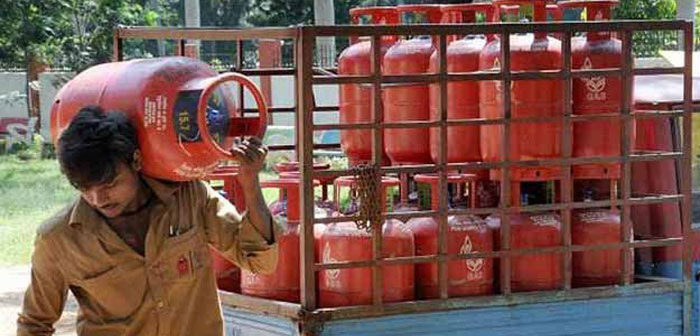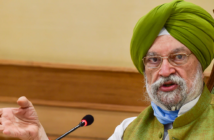Guest Article by K.M.Mahesh, Deputy Secretary (LPG) in Ministry of Petroleum & Natural Gas, in Governance Democracy & Politics Magazine, April Issue, (Views expressed are personal)
Pradhan Mantri Ujjwala Yojana (PMUY) has signalled the advent of the ‘Age of Governance’ in the Indian political scape. Governance as a vehicle that steers and leads by nudging changes in appropriate areas to ensure the greatest good of the largest numbers is in evidence in this yojana. That people have reposed faith in this model of good governance in the recent elections is demonstrative of this scheme’s prayojana.
The flagship initiative of Ministry of Petroleum and Natural Gas, PMUY envisages providing LPG connections to 5 crore women from below poverty line households between 2016 and 2019. Announced in Union Budget 2016, at the end of 11 months over 2 crore households received connections exceeding the target of 1.5 crore households for the financial year. The latest figures indicate that maximum beneficiaries are from the erstwhile BIMARU states and West Bengal including Jharkhand and Chhattisgarh. That nearly half the beneficiaries are from Scheduled Castes, Scheduled Tribes, and minorities is testimony to the success of Ujjwala.
More than two-third of the connections were provided in Uttar Pradesh, Bihar, Madya Pradesh, West Bengal, Rajasthan, Jharkhand, Odisha and Chhattisgarh. While a direct correlation between provision of a merit good and concomitant political dividend may be too simplistic, the positive externalities emanating from such provisioning is without dispute.
Relying on data from Socio Economic Caste Census 2011(SECC), PMUY gains from the merits inherent in the methodology adopted. For the first time identification of beneficiaries is by means of revealed responses of recipients as opposed to serving those that lie below a certain calorifically drawn linear line. Automatic inclusion and exclusion of households and measurement of deprivation addressing multi-dimensionality of poverty has served to broaden the scope of recipients serviced by the scheme. Gaining access to assistance from a scheme is not beholden to the munificence of a mai-baap; it is a systematically identified benefit to avail.
The beneficiary of Ujjwala Yojana is first an applicant who identifies herself as being entitled. Benefits are granted to her after identifying her through Aadhar, linking her to a Jan Dhan Account and confirming her eligibility against the SECC Data. Provisioning of a basic merit good by the government is then an evidenced-based intervention hinged on self-selection. Mediated by technology for de-duplication of beneficiaries, ensuring transparency and fairness in disbursement of connections, the scheme plugs leakages and ensures serving of the unserved and underserved, scientifically.
LPG gas connections, above all else, serve to benefit women, especially rural women who typically use traditional cooking fuels indoors. Indoor air pollution is known to cause health hazards, severe morbidity and decline in general well-being. Environment stands affected due to felling of trees and release of noxious gases into the atmosphere. LPG is a clean fuel that not only overcomes the health and environmental downsides of traditional cooking fuels but also reduces drudgery of women –folk in households and increases the time available for them to engage in more productive pursuits. Drudgery is unpaid labour with little productivity that causes severe wastage of time. It is particularly fruitless as alternatives to such toiling exist but are not being used due to lack of access or unavailability. PMUY attends to these issues manifestly thereby unlocking latent benefits that good health, well-being, economic attainment and empowerment entail. And it does this impartially and without discriminating among all who are entitled.
Scientific and comprehensive criteria to identify those who are entitled is, in itself, not adequate for successfully implementing a scheme and achieving outcomes from it. Ujjwala scheme inheres multi-stakeholder participation by incentivising LPG Distributors and Oil Marketing Companies for identification of beneficiaries and releasing connections with the Ministry retaining the regulatory reins. In doing so even the Ministry has taken a turn, for the first time, to serving social welfare objectives and merely restricted itself to corporate objectives of exploration, production and distribution of petroleum and natural gas. It is in fact the first ministry to use SECC data for scientific selection of beneficiaries. Involvement of elected representatives in distribution melas has further expanded the scope of participation and assurance in delivery.
All in all, by doing away with middlemen and patronage of the ‘mai-baap’, the inefficiencies which have been the hallmark of legacy schemes, and in effectively delivering pro-poor, pro- women outcomes Ujjwala has set new benchmarks in governance where people have emerged true recipients of development.




